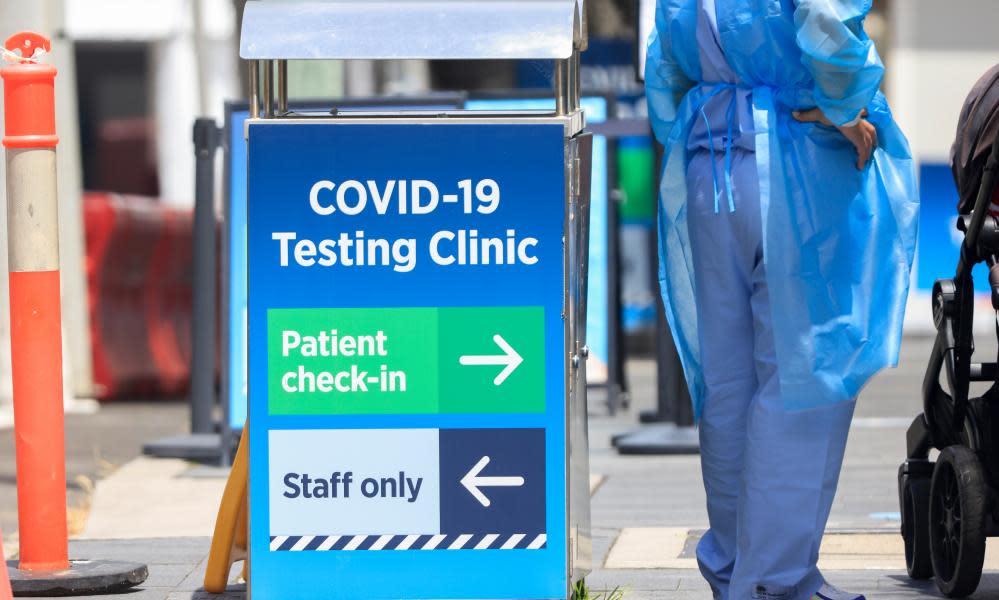Findings from Australian-led study may explain why some don’t get Covid-19 symptoms

An Australian-led research team has uncovered the first genetic link to strong immunity against Covid-19, which may help to explain why some people never develop any symptoms of the illness.
A person who carries one copy of the protective HLA-B15 gene is twice as likely to remain asymptomatic after infection with the Sars CoV-2 virus that causes Covid-19, while someone who carries two copies of the gene is eight times more likely to have no symptoms, the research, published on Thursday in the journal Nature, found.
In a joint statement the lead authors of the paper, La Trobe University’s Prof Stephanie Gras and Dr Dimitra Chatzileontiadou, told Guardian Australia that while most global efforts have focused on understanding factors underlying severe Covid-19 illness, examining asymptomatic infection is also important.
Related: Long Covid causing job losses and homelessness in Australia, inquiry hears
It can help scientists understand how the immune system can rapidly clear the virus in some individuals, allowing them to remain healthy despite infection.
“Our results may lay the groundwork for refinement of vaccine development and therapeutic options,” they said.
While about 10% of people without the HLA-B15 gene had no symptoms after contracting the virus, this rose to between 20 and 30% in those with a copy of the gene, increasing their protection at least twofold.
The researchers found that individuals with a particular HLA-B15 gene protein have T-cells (a type of white blood cell that helps protect against disease) that can recognise a part of the Sars CoV-2 spike protein that is similar other seasonal coronaviruses which cause the common winter cold. This is known as cross-reactivity.
A virologist and associate professor at the University of New South Wales’ Kirby Institute, Stuart Turville, said: “Many of us would have had a seasonal coronavirus before and those with this gene would have educated a T-cell population during this past infection.”
“So their T-cells would be ready for battle, so to speak, once Sars CoV-2 turned up,” Turville said. The HLA-B15 gene protein is an important factor because “unlike antibodies, the T-cells cannot see or bind to the virus particle and need HLA proteins to determine how to respond to an infection”.
The research is part of a global study including the University of California, San Francisco, which is using data from almost 30,000 registered bone marrow donors in a voluntary program to track Covid-19 infections and symptoms. Of 1,428 unvaccinated donors with positive test results for Covid-19, 136 had no symptoms.
Turville said it was “really clever” to use the bone marrow program because it allowed the researchers to track a large population and look for any genetic makeup that may be important for immunity against viruses.
“What’s also interesting is that HLA proteins are different across a population, enabling some of us to be better equipped to take on a virus we see,” Turville said.
“Some people with certain HLAs control HIV infection really well, referred to as ‘elite controllers’. But this doesn’t mean in general if you have this protein you can fight off all viruses as well. Curiously, other studies have shown this specific protein is associated with poor progression with hepatitis C, for example.”
The head of the Garvan Institute’s immunology and immunodeficiency laboratory, Prof Stuart Tangye, said it was important to note there were many factors influencing susceptibility to Covid-19 symptoms and genetics was just one of them. Not everyone with HLA-B15 will be symptom-free.
“This research is a nice extension of previous work done or cross-reactivity, and it helps to further explain asymptomatic infection in some people, but not all people,” Tangye said.


